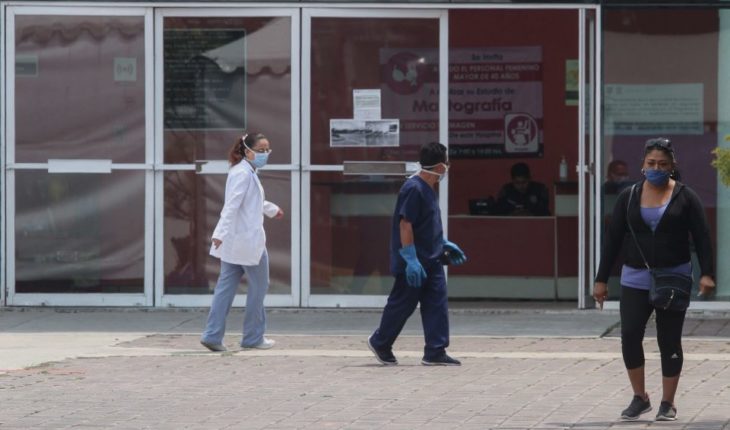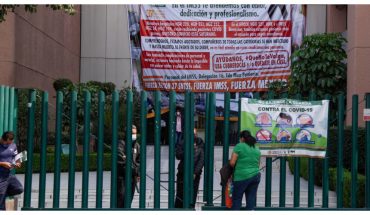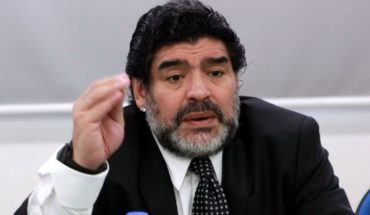In less than 24 hours, Dr. Edgar Allan Castillo López tested positive for COVID-19 and was dismissed as director of Mexicali General Hospital, Baja California. In the afternoon, almost with the tests in hand, he informed the Secretary of Health, Dr. Alonso Pérez Rico. The next day he learned of his dismissal: no one called him, but a new director was in his office.
On April 8, Castillo recounts, he noticed the symptoms: sore throat, some fever, discomfort in the body and exhaustion.
Two days earlier, the General Hospital had become the reference center for COVID-19 in Mexicali and its boss had to deal with a pandemic that worldwide has infected more than two million people and has taken the lives of nearly 150,000.
Anguished, the doctor got tested and tested positive. Sending the samples to Mexico City for analysis would have taken too long, so it took one of the private laboratories that have validation from the Ministry of Health and accelerated the process.
Read: BC government and health face COVID-19 death toll
“I have family, I couldn’t take any chances,” he explains. That same day he learned that he had spread, so he warned his colleagues and superiors: the next day he would not go to work and be quarantined.
On April 9, with no notice to him, a new director showed up at the General Hospital and held his office, which he had been using since He was appointed as director in November.
This is Dr. Diego Fernando Ovalle Marroquín, who has so far served as Director of Quality and Health Education at the Institute of Health.
Sick leave had become for Castillo in his dismissal as head of the hospital. Now, he says, he doesn’t know where he’ll be sent when he’s recovered. He hasn’t even been directly informed that he’s no longer in charge.
“I found out because I was warned by some colleagues, but I haven’t received any office in writing,” he says.
On 11 April, the Ministry of Health issued a statement announcing the cessation. It was titled “In times of crisis, health warriors defend the population.” It indicated that Castillo left his post and that Ovalle was temporarily entering.
“The previous director of the nosocomium tested positive for coronavirus, while the deputy medical officer is a case suspected of this condition, so it was decided to separate his position from these doctors, to safeguard and protect the staff and patients of the hospital unit in the best interest of caring for the population in the face of the pandemic,” the statement reads.
“I’m dismissed for asking for inputs and because we had a confrontation about the municipal work plan,” he says, in a telephone conversation from home, where he recovers from the disease.
Animal Político wanted to know the version of the Ministry of Health on the dismissal of the director, but at the close of the note it had not received a response. An interview was also requested from Dr. Ovalle, the new director of the General Hospital of Mexicali, but declined because he was not authorized to give statements without the authorization of those responsible for social communication.
Find out: ‘You feel frustrated, why are we being assaulted?’ : doctors are discriminated against during emergency by COVID-19
“Outbreak that is not treated as such”
Baja California is one of the states with the highest contagion rate in Mexico. Neighboring California, in the United States, is one of the most affected states in the country with the most sick COVID-19 people in the world.
In the midst of the crisis, the main state hospital for treating coronavirus patients loses its management team. Castillo and his second, Miguel Romero Flores, taking advantage of his convalescence, were dismissed. In addition, the already ex-responsible of the nosomio assures that seven of the twelve members of his team are at home infected. According to his version, about 14 doctors would have gotten sick.
“It’s an outbreak. They’re not treating him as such, but it’s an outbreak,” he says.
He admits that he does not know where he was ill, as at the time he was in the hospital during the pandemic he did not see any of the 24 patients diagnosed with COVID-19.
Castillo is convinced that his dismissal has to do with the dispute over how to deal with the pandemic. In Mexicali there are three areas from which health initiatives can come: municipal government, state and federal executive. All three are in the hands of Morena, the party of President Andrés Manuel López Obrador. However, according to several sources consulted, there has been no coordination in establishing a joint roadmap.
Castillo says that in January the first meetings sponsored by the municipality began. He was in charge of writing a plan. The idea was to concentrate all the contagions in an area, that of the general hospital. There is also the campus of the Medical Faculty, where a contingency area with shelter and industrial kitchens was prepared.
For weeks, meetings were held in which the directors of the main hospitals of Mexicali were present, public and private; CIVIL government, DIF, Army, National Guard and Red Cross.
Sources present at that meeting, who asked for anonymity, ensured that the Ministry of Health was invited but only attended on one occasion.
According to this source, the Secretariat did not like the secretariat to be ahead of the curve and showed its disapproval of the plan. The last straw, he said, was for army elements to launch the contingency zone on the campus of the Universidad Autónoma de Baja California.
“That’s where the threats started at the table,” he says.
The other point of friction was the conversion of the general hospital as a hospital as an exclusive center for COVID-19 and the lack of preparation that, according to Castillo, reported to its superiors.
The first case of coronavirus was on March 24, but it was not until 6, two days before the dismissal, that the General Hospital was made a benchmark for the pandemic.
Castillo says there were not enough inputs during this time. He says the first 2,000 personal protection kits he got by asking for donations from community entrepreneurs. And that the first 500 that arrived did so just on the 7th, 24 hours before they tested positive and stopped.
“It’s the only hospital with capabilities in the city. But I wasn’t ready. Even managers had to put it out of our pocket to buy material to condition a few things,” he said.
“We are close to California, which is the second most contagious state in the United States and nothing has been done preventable,” he complained.
The alleged lack of inputs has led to conflicts in Baja California. On Monday, actor Eugenio Dérbez made a video on Twitter alleging that doctors had asked him to make public the shortage of head coverings, gloves and protective material. The Mexican Institute of Social Security (IMSS) denied him, accusing him of spreading “fake news” and even President Andrés Manuel López Obrador said there was a campaign to discredit him involving famous characters.
Finally, Jaime Bonilla, governor of Baja California and very close to López Obrador, ended up recognizing that there were deficiencies and blaming IMSS for the lack of material.
Castillo says that the bad relationship with Pérez Rico was motivated precisely by his claim for more inputs and his participation in the plan with other institutions. And he took advantage of the he fell ill to relieve him. He said he asked for a trade to have the decision in writing, but he never received anything.
“They don’t like to be evidenciens,” he says.
Now, a week after his dismissal, he fears for the immediate future of hospitals in Baja California. “Since nothing was prepared we had a catastrophe in Tijuana and Mexicali is on track, it can happen in two or three weeks,” he says.
What we do in Animal Político requires professional journalists, teamwork, dialogue with readers and something very important: independence. You can help us keep going. Be part of the team.
Subscribe to Animal Político, receive benefits and support free journalism #YoSoyAnimal.
translated from Spanish: Mexicali hospital director who got COVID-19 is dismissed
April 19, 2020 |





